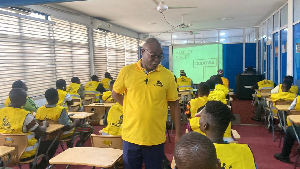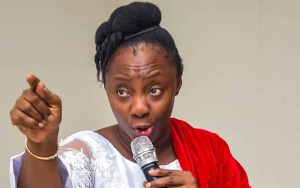The Integrated Social Development Centre (ISODEC), a human rights and a social development non-governmental organization, has expressed grave concern about the alarming rate of forced marriages in the Karaga District, a situation which impedes the education of the girl-child.
Madam Agnes Gandaa, Northern Ghana Programmes Coordinator of ISODEC, who expressed the concern, said a survey conducted by her outfit revealed that many communities in the district still practiced forced marriages, betrothal and other outmoded forms of marriages, which undermined many females in the area from progressing in education.
She said the culprits, who were currently facing difficulties in their operations, have adopted a practice of refusing to send their female children to school to avoid the situation where teachers would attempt to prevent them from giving out their girls for marriage.
Madam Gandaa expressed her concern in Karaga on Wednesday, during a day’s forum on forced marriages and enrolment of girls in school, as part of an implementation project of the Alliance for Change in Education (ACE).
The forum forms part of activities by the ACE and ISODEC to address the challenges of education in the Karaga and Gushiegu districts.
She said forced marriages were not only a form of domestic violence, but also deprived females from advancing from the shackles of poverty, and called on stakeholders in education, development partners, government and parents, to help address the issue.
Mr Eten Simon, Focal Person of ACE Project in ISODEC, who presented the research findings, indicated that out of the 20 communities that the research was conducted, 95 per cent of the respondents admitted giving out their daughters for marriage in all forms, including exchange, pregnancy-induced marriages and betrothal marriages.
He said reasons given for the practice were that forced marriage was a cultural mechanism through which the people marry, strengthens family ties and friendship, a means to secure farm labour and other forms of economic benefits and that: “Some force their daughters into marriage to relieve themselves of the burden of providing for their needs”.
Mr Eten also described the Karaga district as the lowest in the country with a Gender Parity Index whilst the pass rate in the BECE for the 2011/2012 academic year was 95 per cent, with boys recording 53 per cent and 42 per cent for girls.
He said the transition for girls in most of the schools visited was generally described as smooth, stressing that, the study also revealed that about 75 per cent of girls enrolled into the schools were always able to transit from one class to the other with the remaining 25 per cent not being able to do so, adding that, some of them become ‘Kayaye’, or suffer teenage pregnancies, forced marriages and class repetition.
Mr Paul Apanga, Northern Regional Director of Education, in a speech read on his behalf, said the public primary school enrolment in the region increased from 392,624 in 2010/11 to 419,980 in 2012/13 academic year whilst that of Junior High Schools increased from 105,708 to 116,851 in 2012/13.
He stressed on the importance of girls’ education, noting that, outmoded cultural practices was affecting girls’ education in the Karaga and Gushiegu districts ,and called on traditional and religious leaders to try as much as possible to break such cultural barriers.
Mr Apanga urged the affected districts to enforce laws, aimed at promoting girls’ education, and that; sensitization was the surest means of educating the public on the importance of girls’ education.
Regional News of Thursday, 5 September 2013
Source: GNA
















